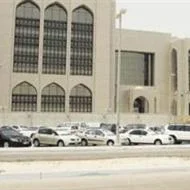 Abu Dubai authorities have cancelled a decision to exempt children under 15 from having a national ID card and told their families to register them before the end of a new deadline on October 1.
Abu Dubai authorities have cancelled a decision to exempt children under 15 from having a national ID card and told their families to register them before the end of a new deadline on October 1.The announcement by the Emirates National Identity Authority (Eida) follows a decision by the Abu Dhabi Education Council (Adec) that all children must produce a national ID card when registering for the new school year.
“Emirati and expatriate families of all children under 15 must apply to register their children with the national identity,” Eida said in a statement carried by the Sharjah-based Arabic language daily 'Al Khaleej'.
“This is a compulsory measure…they should do so before the end of the deadline on October 1 or they will have to pay delay fees.”
The statement said children who do not have separate passports would not be given an ID card, adding that applicants under that age need not come to Eida registration centres as applications can be submitted by their parents.
'Al Khaleej' said Adec’s decision applies only to public schools and the report did not mention whether such measure would be extended to other emirates.












